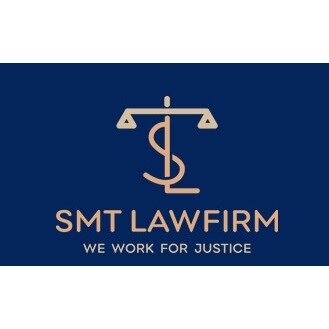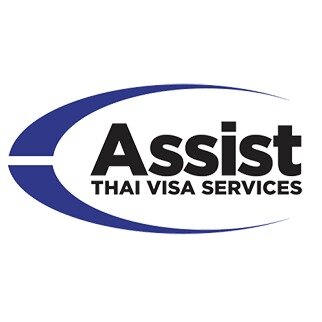Best Conveyancing Lawyers in Chiang Mai
Share your needs with us, get contacted by law firms.
Free. Takes 2 min.
Free Guide to Hiring a Real Estate Lawyer
List of the best lawyers in Chiang Mai, Thailand
Legal guides written by SIAM LEGAL INTERNATIONAL:
- Defamation Laws in Thailand: Criminal Charges and Civil Suits
- The State of Thailand’s Long-Term Resident (LTR) Visa Program in 2025
- The Penalties Of Not Filing Your Income Tax Return As A Foreigner In Thailand
About Conveyancing Law in Chiang Mai, Thailand
Conveyancing refers to the legal process of transferring ownership of property from one party to another. In Chiang Mai, Thailand, as in the rest of the country, this process is governed by specific laws and regulations to ensure that property transactions are conducted securely and transparently. The conveyancing process typically involves verification of the seller’s title, conducting due diligence on the property, preparing and reviewing sale and purchase agreements, and finally, registering the transfer at the local Land Office. Whether you are buying, selling, or leasing out property in Chiang Mai, understanding the intricacies of conveyancing law is crucial to avoid legal and financial pitfalls.
Why You May Need a Lawyer
Many individuals and businesses require a lawyer when handling conveyancing matters in Chiang Mai. Here are common situations where legal assistance is beneficial:
- Property Purchase or Sale: Legal professionals can help review agreements, verify ownership, and ensure compliance with Thai property laws.
- Foreign Ownership: Non-Thai citizens face restrictions on land ownership and often need guidance through complex legal structures, such as leaseholds or company ownership.
- Title Searches and Due Diligence: Lawyers ensure the property is free of encumbrances and that the seller has legal rights to transfer the property.
- Contract Drafting and Review: Legal experts draft and review contracts to protect your interests and reduce risk.
- Tax and Transfer Fees: Assistance with calculating and remitting the correct taxes and fees during the property transfer process.
- Resolving Disputes: Legal support is essential if any disputes or claims arise during the transaction.
Local Laws Overview
Conveyancing in Chiang Mai is regulated by several key laws and procedures:
- Land Code Act: This primary legislation governs land ownership, transfers, and registration in Thailand. It outlines who may legally own land and what documentation is required.
- Condos and Buildings: Foreigners can own condominium units outright, subject to the 49 percent foreign quota on a condo development. Buying land is restricted for foreigners unless special arrangements are made.
- Registration Process: Property transfers must be registered at the local Land Office. The process involves both parties being present in person or by power of attorney, submission of transaction documents, and payment of applicable fees and taxes.
- Due Diligence: This includes checking land title deeds, ensuring there are no mortgages or encumbrances, and that the property does not infringe on public land or zoning laws.
- Taxation: Taxes and transfer fees apply. These include transfer fees, specific business tax, withholding tax, and stamp duty, each calculated differently depending on the seller and ownership period.
Frequently Asked Questions
What is conveyancing in Chiang Mai?
Conveyancing is the legal process of transferring property ownership from one party to another. In Chiang Mai, this includes title verification, contract drafting, and registration with the Land Office.
Can foreigners own land in Chiang Mai?
Generally, foreigners cannot own land in their own names but can own condominium units. Alternative arrangements, such as long-term leases or company structures, are sometimes used but require careful legal advice to ensure compliance with Thai law.
What are the risks of not using a lawyer for conveyancing?
Without a lawyer, you may face risks such as unclear ownership, hidden debts or mortgages on the property, or signing unfair contract terms. Legal counsel helps protect your interests throughout the transaction.
How do I know if a property title is legitimate?
A lawyer can conduct a title search at the Land Office to verify the authenticity of the title deed and check for any encumbrances or disputes.
What taxes and fees will I need to pay during property transfer?
Typically, transfer fees, specific business tax, withholding tax, and stamp duty will apply. The exact amount depends on the property’s value and the ownership circumstances.
How long does the conveyancing process take?
If all documentation is in order, the process can take a few days to a couple of weeks. However, delays may occur due to issues with title verification or incomplete paperwork.
Is it possible to use power of attorney for conveyancing?
Yes, buyers or sellers who cannot be present at the Land Office may grant power of attorney to a trusted representative, but the documents must meet legal requirements and be properly notarized.
What documents do I need for conveyancing in Chiang Mai?
Typical documents required include the original title deed, identification documents or passport, sale and purchase agreement, power of attorney (if applicable), and tax payment receipts.
Are deposits refundable if the sale does not proceed?
Refunds depend on the terms set in the agreement. Generally, if a buyer withdraws for no valid reason, the deposit may be forfeited. Legal counsel can help ensure fair contract provisions.
Where do I register the property transfer?
Property transfers must be registered at the local Land Office in the district where the property is located. Both parties or their authorized representatives must be present with required documentation.
Additional Resources
For additional help and information about conveyancing in Chiang Mai, consider reaching out to these resources:
- Chiang Mai Land Office: The primary governmental authority for property registration and title verification.
- Law Society of Thailand: For a list of licensed lawyers and legal professionals specializing in property law.
- Department of Lands, Thailand: Official information and regulations about property ownership and land transactions.
- Thai Real Estate Associations: Provide general guidance on property market practices and standards.
Next Steps
If you are considering buying, selling, or leasing property in Chiang Mai, the following steps can help ensure a smooth and secure transaction:
- Consult with an experienced property lawyer who understands local regulations and practices.
- Arrange for a thorough title search and property due diligence before committing to a purchase or sale.
- Ensure all agreements are carefully drafted, reviewed, and legally compliant before signing.
- Prepare all necessary documentation in advance for the registration of transfer at the Land Office.
- Stay informed about applicable taxes, fees, and legal obligations related to property transfers.
- If any disputes or uncertainties arise, seek prompt legal advice to protect your rights and interests.
Conveyancing in Chiang Mai involves several important legal considerations, but with the right guidance, you can navigate the process confidently and securely.
Lawzana helps you find the best lawyers and law firms in Chiang Mai through a curated and pre-screened list of qualified legal professionals. Our platform offers rankings and detailed profiles of attorneys and law firms, allowing you to compare based on practice areas, including Conveyancing, experience, and client feedback.
Each profile includes a description of the firm's areas of practice, client reviews, team members and partners, year of establishment, spoken languages, office locations, contact information, social media presence, and any published articles or resources. Most firms on our platform speak English and are experienced in both local and international legal matters.
Get a quote from top-rated law firms in Chiang Mai, Thailand — quickly, securely, and without unnecessary hassle.
Disclaimer:
The information provided on this page is for general informational purposes only and does not constitute legal advice. While we strive to ensure the accuracy and relevance of the content, legal information may change over time, and interpretations of the law can vary. You should always consult with a qualified legal professional for advice specific to your situation.
We disclaim all liability for actions taken or not taken based on the content of this page. If you believe any information is incorrect or outdated, please contact us, and we will review and update it where appropriate.







![Legal & Business Consultancy in Chiang Mai [LBC CHIANGMAI]](https://lawzana.com/storage/firms/2674/16209701614886.jpg)









